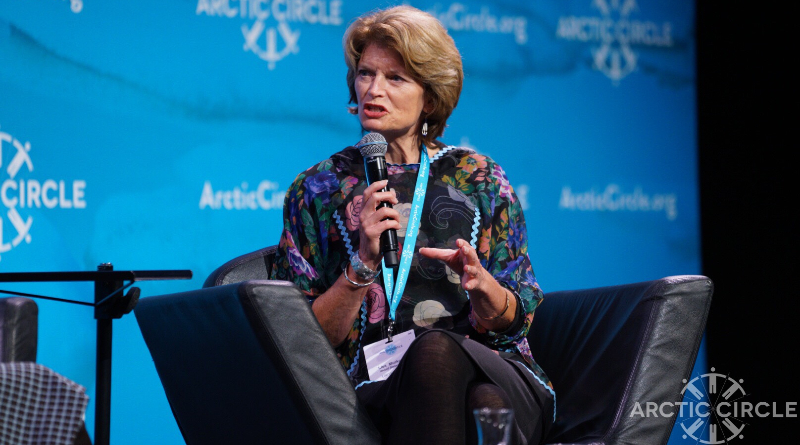US Senator Lisa Murkowski (R-AK) has expressed concerns that she may have been misled by the Trump administration regarding key energy legislation. In a recent statement, she noted, “I feel like we made a deal and then, hours later, a deal was made to somebody else.” This comment reflects her discontent with the One Big Beautiful Bill Act (OBBBA), which proposes significant cuts of nearly $500 billion to US clean energy spending.
Murkowski was pivotal in supporting the OBBBA, which extends tax cuts initiated during Trump’s tenure in 2017, funds immigration enforcement, and imposes new work requirements on social safety net programs. Her backing of the bill was contingent on assurances from Congress to protect funding for Alaskan wind and solar initiatives, which had faced potential cuts for several months.
Historically a proponent of oil and gas development in Alaska, Murkowski advocates for a diversified energy strategy that includes renewable sources such as solar, wind, and hydropower. Following her crucial vote on the OBBBA, Donald Trump unexpectedly issued an executive order limiting the awarding of contracts for solar and wind projects. This directive undermines her efforts to promote renewable energy in a state heavily reliant on imported diesel fuel for electricity.
In her initial support for the OBBBA, Murkowski framed her negotiations as part of a “hard-won fight” aimed at addressing an impending energy crisis in Alaska’s Railbelt region. The local supply of natural gas from Cook Inlet has become insufficient to meet energy demands. Reflecting on her vote, she stated, “It’s not everything that I wanted, but it’s going to keep some of our projects alive, and that’s important.”
Yet, only weeks after her vote, Murkowski has reassessed her stance. She described the Trump administration’s actions as “reckless” and indicated a growing concern about the potential repeal of tax credits tied to clean energy projects. “Do I feel like the administration was not being up-front with us? Yes,” she remarked, expressing her fears that utility companies might abandon renewable projects in light of the executive order.
Murkowski highlighted that the elimination of tax credits would have dire consequences, stating it would erase far more value for individuals in the US than it would save for the federal budget. Despite these setbacks, she maintains that the OBBBA includes provisions beneficial to Alaska, such as a new royalty-sharing mechanism that will allow the state to receive revenue from oil production on federal lands, effective in 2024.
The legislation also incorporates a measure to secure a 12-month window for projects to benefit from tax credits, even as some Republican lawmakers attempted to eliminate these incentives immediately. However, Interior Secretary Doug Burgum has now been tasked with personally overseeing even routine approvals for wind and solar initiatives on federal lands, which could lead to significant delays or halts in anticipated private renewable energy projects in Alaska.
Murkowski emphasized the implications of Trump’s executive order, saying, “If you were looking for something proof-positive that the administration is looking to literally cut off a sector of the energy industry, it couldn’t be more compelling.” She characterized the executive order as a direct affront to the agreements she believed had been reached.
The Senator also noted that the executive action undermines the year-long window for tax credits, which were designed to protect vulnerable communities from the adverse effects of the OBBBA. This contrasts with the longer tax credit window established under the 2022 Inflation Reduction Act passed by the Biden administration.
Although Murkowski has argued that the OBBBA will not disproportionately impact the most vulnerable Alaskans, a closer examination reveals potential pitfalls. The Republican caucus has encouraged members to consider Medicaid as a target for funding cuts, complicating matters in a state with a high Medicaid and SNAP (Supplemental Nutrition Assistance Program) population. Murkowski acknowledged the increasing numbers and questioned where “fair and reasonable reforms” could occur.
The OBBBA requires individuals to demonstrate engagement in work, community service, or training for a minimum of 80 hours per month, or to be enrolled in school part-time, unless they qualify for exemptions. Research indicates that those not working often include older women who have left the workforce to provide care for family members.
The nonpartisan Congressional Budget Office (CBO) estimates that the OBBBA will result in a reduction of federal spending on Medicaid and Children’s Health Insurance Program (CHIP) benefits by $1.02 trillion, potentially affecting over 10.5 million individuals by 2034. As states grapple with new federal restrictions on Medicaid eligibility, they may face difficult choices regarding funding and services.
In light of the current legislative landscape, Murkowski’s recent reflections underscore the complexities of navigating energy policy and its implications for Alaskan communities. As discussions continue, the future of renewable energy and social safety nets in Alaska remains uncertain.
